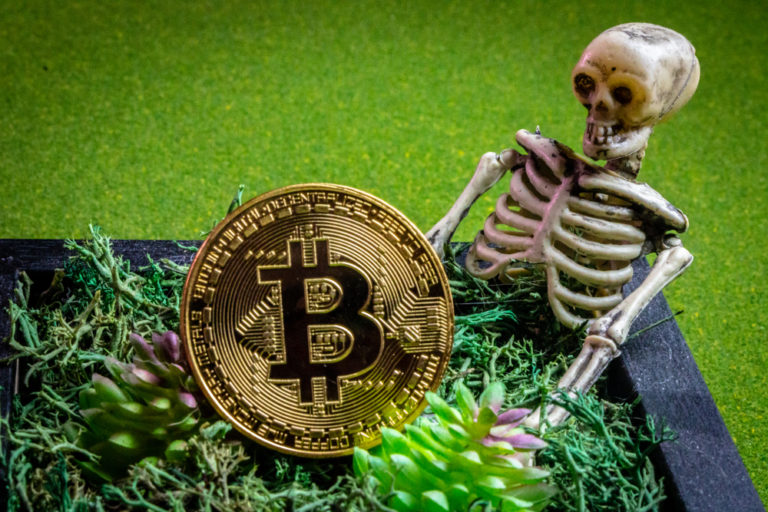
It used to be simple: you died, left a will, told everyone where the money was, they shared it. Now, is it more complex? You die, leave a will, tell everyone where the money is … but the password was changed or has expired or your account is inaccessible for various reasons, as in you don’t have the authenticator app or PIN?
After a death, it’s pretty tough to get access to financial assets. This has been true for a long time, as illustrated by this legal write-up:
When someone dies, a personal representative (PR) is responsible for managing the deceased’s estate (money, property and possessions) and will be responsible for closing any bank accounts … the PR should start by looking through the deceased’s paperwork to see if they can find any bank statements. This may not be an easy task if the deceased was not organised and the move towards online banking means that often there are no bank statements to be found.
This may not be a big issue when you have access to an authority to open the account to the estate – in this case, I’m thinking of a telephone number to call a bank to discuss the death – but it may be even harder these days, when so many assets are digital. For example, it’s tough to find the financial assets of a dead person normally, but what about if it is cryptocurrency? After all, those who hold such currencies do their best to hide them in cold wallets with access under secure authentication, using triple-layer security and cold wallets offline. That’s the reason why so many bitcoins have been lost:
Interestingly, in the case of Mr. Prighozin, his bitcoins apparently belong to the US government. Nevertheless, we have seen people dying and their crypto assets disappearing many times before: Crypto CEO dies holding the only passwords that can unlock millions in customer coins; or think of the Bristolian chap who lost half a billion dollars by throwing his hard drive away. In fact, research reveals that, through 2022, four million bitcoins worth around USD$140 billion, had been lost.
So, as we sit today with our investments and assets, do you ever consider how much might be lost if you haven’t recorded them? Thing is that, although I’ve recorded them, how do I sahre that information when it is meant to be secret? You may say: but surely your closest loved one should have this information? and I reply: happy for them to have it when I die but, if they have it today, they’ll spend it!
What to do? What to do?
Well, in a scene from any well-known whodunnit writer (think Agatha Christie), here’s the outcome.
The loved ones of the late Chris Skinner gather in the solicitors office, all hoping from a payout from his estate. There’s the useless son, the sluttish daughter, the drunken wife, the sizzling mistress and, oh yes, the brother no one knew existed and no one talks to due to the smell.
The solicitor opens the document and a buzz enters the room. Yes, it is summertime and there’s a fly.
The legal eagle reads the document carefully, wearing spectacles that look like they were made in the 1800s. Why isn’t he wearing contact lenses?
Looking up, he begins:
“I am reading the last remaining will and testament of Christopher Skinner who, being of sound mind and spirit, leaves all of his physical worldly goods to the World Wildlife Fund, a chiartiy that looks after rare animals.”
There’s a gasp in the room. The solicitor continues …
“Meanwhile, none of you knew that I invested in a few thousand bitcoins in 2011. You are welcome to them and allocate them as a share to each of you.”
Another gasp in the room, but this time a happy one.
“This means that my son David receives 800 bitcoins worth over $20 million, at last valuation.”
David beams and lights a joint.
“My daughter Grace also receives 800 bitcoins.”
Grace chews her gum more aggressively.
“My wife Eva has 2,000 bitcoins, or near $50 million.”
Eva hiccups.
“My good friend Tessa” – the mistress – “is given 200 bitcoins …”
Tessa is pissed.
… “oh, and 10,000 ETH” [around $170 million].
Tessa is not pissed. Eva is (literally).
“And finally, to my brother John, if he is there” – he is – “I leave my dog, Spot.”
John is not happy, but everyone is now smiling.
“Oh, and one last thing”, the solicitor says, as he reads the final words on the will. “I wish you all the best of luck finding my cryptocurrency. The codes are hidden in a place no one has ever been. Here is your clue:
“Is it in the back of beyond or up the juinciton?
“Is it in the heart or in the mind?
“If it is somewhere that needs to function,
“Then maybe it’s in the one place you won’t look to find.
“Good luck and farewell my loves.”
Everyone was now confused and down-hearted but, just then, the coroner entered the room and asked the solicitor if this shrink-wrapped piece of plastic with some notes inside might be important.
Everyone leaned forward.
“Where did you find this?” asked the legal beagle.
“It’s sensitive”, whispered the coroner.
Chris M Skinner
Chris Skinner is best known as an independent commentator on the financial markets through his blog, TheFinanser.com, as author of the bestselling book Digital Bank, and Chair of the European networking forum the Financial Services Club. He has been voted one of the most influential people in banking by The Financial Brand (as well as one of the best blogs), a FinTech Titan (Next Bank), one of the Fintech Leaders you need to follow (City AM, Deluxe and Jax Finance), as well as one of the Top 40 most influential people in financial technology by the Wall Street Journal's Financial News. To learn more click here...


